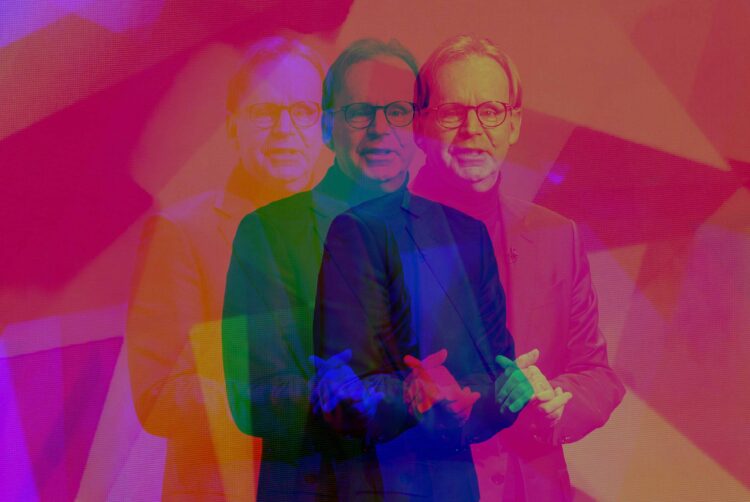Can ITV’s great entertainer Kevin Lygo stay onside for diversity?

Opinion
ITV charts a course for diversity – but can director of television Kevin Lygo resist the urge to step on the message?
With the announcement last week of a ring-fenced diversity fund of £80m, ITV was seen to be putting its money where its collective mouth is in terms of progressive company policy.
Then last Friday Channel 4 appeared to play catchup, with their own diverse Indies fund, an initiative that appeared being brought forward to demonstrate the broadcaster’s own commitment to representing ethnically diverse-led indies.
A strategy that many in broadcasting believe could have been instituted when C4 launched back in 1982.
At ITV, fingers must be crossed by many that director of television Kevin Lygo does not feel the urge to undercut the message with a characteristic piece of self-proclaimed ‘mischief‘.
Lygo must be given his fair share of credit for ITV’s resilience in the face of competition from streamers, a healthy balance sheet and a noticeably stronger drama slate than is usual for the broadcaster.
The reliance on tired entertainment formats is being addressed with the welcome prospect of charmless one-trick pony Simon Cowell finally being shown the door after the failure of umpteenth talent contest Walk the Line.
But last week’s two-part C4 documentary on The Jeremy Kyle Show overshadows some of the positive societal message ITV seeks to convey.
Writing recently in The Guardian, Dorothy Byrne (former head of news and current events at C4) commented: “Are TV bosses really scarier than the mafia and Vladimir Putin? I felt ashamed for my profession that not a single person was prepared to put their head above the parapet.”
For many, this struck at the heart of Kevin Lygo’s frequently glib responses to ITV controversies (and prior to that C4), where he appears happier to crack wise than address the issues.
A licence to perform
Lygo has yet to reflect publicly on the documentary, possibly the result of advice from the ITV press department to keep his trap shut for a change, or maybe his attention being diverted by other concerns.
Such as his forthcoming publication The Emperors of Byzantium, the book helpfully plugged by ITV current affairs presenter Robert Peston and TV historian Bettany Hughes.
The public calling in of favours is never especially edifying.
With Lygo’s work, there are shades of Joe Kennedy’s letter to his son John, the future US president regarding the youngster’s book While England Slept (1940): “You would be surprised how a book that makes the grade with high-class people stands you in good stead for years to come.”
Speaking as someone possessing a passing acquaintance with the history of the Eastern Roman Empire, I would advise potential readers to opt for John Julius Norwich’s definitive trilogy, rather than Lygo’s effort.
Like the equally bumptious Boris Johnson, Lygo appears to hanker after the mantle of both populist and Renaissance Man with self-aggrandising displays of erudition (Johnson wrote The Dream of Rome in 2006).
They also ventured into the realm of fiction, Johnson with his truly execrable novel Seventy-Two Virgins: A Comedy of Errors (2004) and Lygo with his underwhelming BBC1 police comedy Walter (2014).
Submitted under the pseudonym Ruby Solomon, the Corporation supposedly had no idea of the actual author was according to Lygo, who claimed BBC executives “howled with laughter” when he fessed up to being the writer.
More than viewers presumably did while watching the critically slated effort.
Not the only trait the pair share, as Lygo and Johnson are noted for their unhappy history of making infelicitous comments at particularly inopportune moments.
In Kevin’s case, the representation of the LGBT community on Love Island (“there are quite enough gay people on television”), female colleagues (“they will be heading off to sit on their own respective pink sofas”), bullying and racism on Celebrity Big Brother (“this was in danger of being the most boring BB that we’d had in many years”); ditto Shipwrecked, mental health issues and the Islamic art trade (“you could get your head chopped off for that”) have all provided grist for his comedic mill.
Or, in the eyes of some industry commentators, as driven by a juvenile desire to shock and see what he can get away with under an apparent license for such performative behaviour.
No-nonsense or no consequences?
Presumably Lygo’s Illustrious track record (passing over the likes of The Nightly Show) has given him the standing as one of the increasingly rare industry personalities who can indulge their penchant for speaking off the cuff – often to the despair of colleagues who then have to clean up after him.
Case in point when commenting on the troubled history of Love Island last August (after former contestants Sophie Gradon, Mike Thalassitis and sacked Caroline Flack had all taken their own lives). Lygo said: “People are psychoanalysed to death now, loads of people don’t make it through and find themselves on other programmes that maybe aren’t so rigorous.”
Which ITV then parsed as: “The point Kevin was making is that Love Island’s duty-of-care process includes thorough psychological and medical assessments during the casting process.”
Again, shades of Prime Minister Boris Johnson and the tiresome former Good Morning Britain presenter Piers Morgan, the latter with whom Lygo retains a bantering relationship.
 Stephen Arnell
Stephen ArnellPeas in a pod, some might say.
The issue is now whether Lygo is a refreshing “speak as I find”, no-nonsense truth-teller of the old school, or is high enough up in the pecking order to say what he likes with the luxury of suffering little or no consequences.
There is a danger that many senior TV executives in the UK (and further afield), who are often surrounded by a coterie of fawning courtiers who find it politic not to question the boss, are happy(ish) to suffer whatever waspish darts are thrown their way.
But I suspect that the preference for most of Lygo’s ITV colleagues would be that the Director of Television to ‘carry on the good work, and why not count to ten if tempted to workshop another ‘humorous’ zinger when discussing sensitive issues in public’.
However, at this stage in his career, this may be too big an ask from the Puck of British broadcasting.
Stephen Arnell began his career at the BBC, moving to ITV where he launched and managed digital channels. He continues to consult for streamers and broadcasters on editorial strategy. He currently writes for The Spectator, The Independent, and The Guardian on film, TV and cultural issues. He is also a writer/producer (including Bob Fosse: It’s Showtime for Sky Arts) and has just completed his first novel.
Big Picture: The Media Leader‘s weekly bulletin with thought leadership and analysis by the industry’s best writers and analysts.
Sign up for free to ensure you stay up to date every Wednesday.




